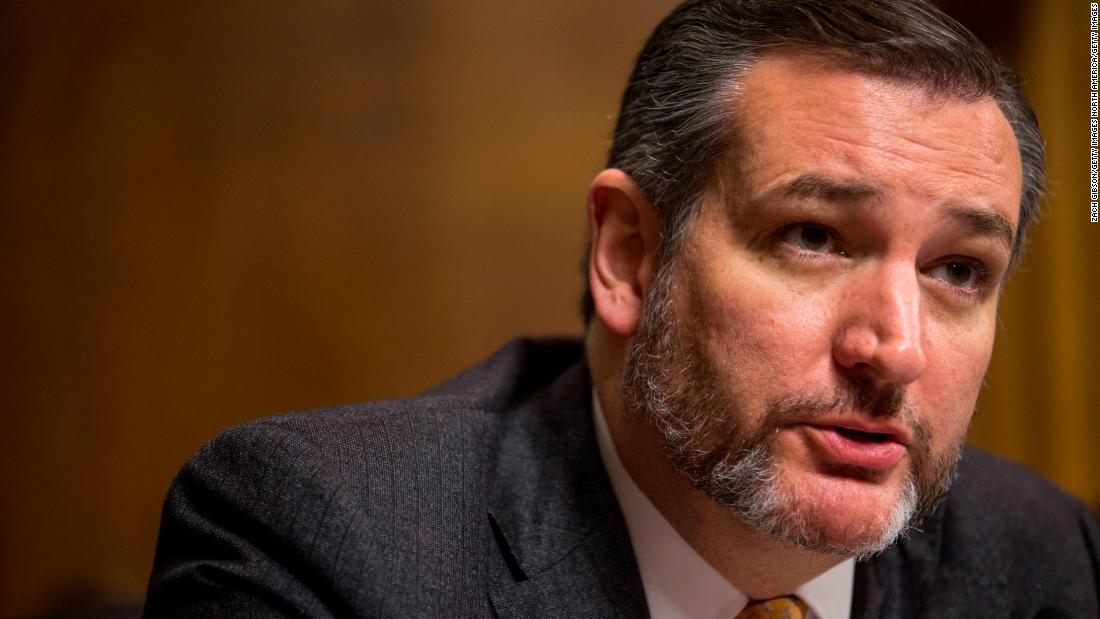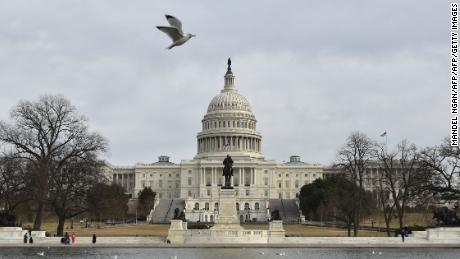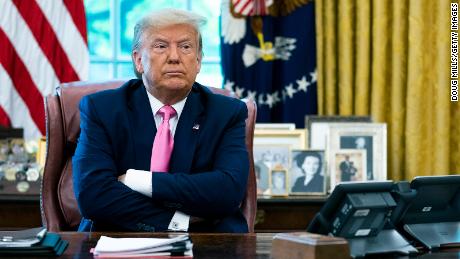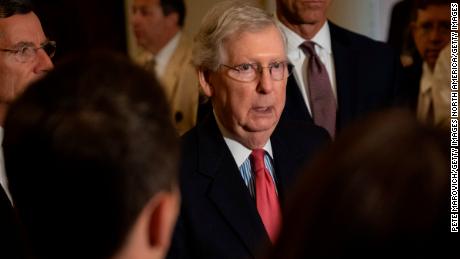Negotiation that erupted into grievance-airing signals how divided Republicans are on stimulus
Bottom line: Scrap the deadlines, self-imposed or otherwise. This process is going to take a while given the vastly divergent intraparty and cross-party views on this legislation. The biggest question right now, particularly for the White House and Senate GOP leadership: was Tuesday just a venting session or a sign of deeper fissures that could threaten the entire process?
The timeline
Treasury Secretary Steven Mnuchin, the top White House negotiator, continued throughout the day to push for a deal by the end of next week to line up with the expiration of the federal enhancement to unemployment benefits. Mark Meadows, the White House chief of staff, was a tad more circumspect over the course of the day.
The reality is this: Senior officials in both parties on Capitol Hill are targeting the first week of August as the most likely point for a deal given the work that needs to be done. But nobody really knows. The real trigger to actually get things started is the GOP proposal, which is expected in the next day or two.
Inside the GOP lunch
It was an eventful hour-plus, as multiple people in the room described it to CNN: Republican Sen. Ted Cruz of Texas chastised his colleagues for pursuing a trillion-dollar proposal, asking them “What the hell are we doing?” and warning that if the bill passes, it would lead to a Joe Biden presidency. Sen. Rand Paul stormed out and went on to refer to the lunch as an assembly of “Bernie Bros.”
Several senators made clear they didn’t see the value in of the payroll tax cut given the current economic problems — a key President Donald Trump priority. One senator warned that the conference needed to be highly cognizant of the frontline GOP senators in increasingly tough races — and their need for the economy to be rebounding in in weeks before the election.
Sen. Bill Cassidy, a Louisiana Republican, recounted for colleagues how he asked himself if he was “on acid” when he heard the White House wanted to zero out new funds for testing in the middle of a pandemic.
As one GOP senator told CNN Tuesday night: “A lot of people had a lot to get off their chest.”
Inside the meeting between Democratic leaders and White House negotiators
Call it an introduction to the new round of negotiations, or an effort to touch base. But don’t call it a negotiation. The meeting between Mnuchin and Meadows and House Speaker Nancy Pelosi and Senate Democratic Leader Chuck Schumer broke no new ground and instead served as a listing of priorities, according to an aide with knowledge of the meeting in Pelosi’s office.
Pelosi and Schumer made clear the GOP funds for education were woefully inadequate in their view, much to the frustration of Republicans.
Democrats also made clear nothing can really start until they have a GOP proposal which, of course, doesn’t exist at the moment.
“We have a bill, let’s see their bill, and see where we go from here,” Pelosi told reporters. “I think their delay is their disarray.”
McConnell’s process
There may be dissension in the ranks at the moment — and several key elements to the proposal still open — but McConnell has made clear whatever he unveils will have “significant” GOP support.
McConnell’s quote of the day: If you listen closely to McConnell’s floor remarks each day, you can often pick out what he’s trying to do and how he’s trying to do it. That included, on Tuesday, how he’s trying to thread the needle in his conference on the stimulus proposal.
“The legislation that I have begun to sketch out is neither another CARES Act to float the entire economy, nor a typical stimulus bill for a nation that’s ready to get back to normal,” McConnell said. “Our country is in a complex middle ground between those two things.
Some perspective: Shared with CNN by handful of aides and senators who don’t think the sky is falling: there is value to members, in a closed door setting, getting frustrations off their chest, particularly in front of the top White House negotiators who may not have been totally aware just how acute some of their objections were going into this process. That can have the effect of letting some of the pressure out the process and smoothing out intra-party squabbles in the days ahead. We’ll see if that’s the case here.
And some progress: Sen. Roy Blunt of Missouri, the top Republican on the health Appropriations panel, indicated White House negotiators were coming toward Senate Republicans on the issue of new funds for testing, as well as the US Centers for Disease Control and Prevention and the National Institute of Health. It’s not a locked in yet, but the hours of meetings between Blunt, Senate Appropriations Chairman Richard Shelby of Alabama, Senate HELP Committee Chairman Lamar Alexander of Tennessee and Mnuchin and Meadows were both “very frank” according to Blunt, and moved things close to an agreement.
What’s in the GOP proposal
– Education funding
Details: The Senate GOP proposal includes $105 billion in education funds — $70 billion for K-12, $30 billion for collegues and universities and $5 billion for governors to utilize on their own. Of the $70 billion, half — or $35 billion — would be allocated for the needs of schools re-opening (PPE, transportation, school meals, retrofitting buildings and classrooms)
– Direct payment checks for families and individuals
– Tax incentives for hiring and retaining workers, as well as for re-opened businesses for PPE and retrofitting
– Liability protections for businesses, schools, health care providers and workers, nonprofits
– New funds for testing, vaccine efforts and health care providers
– Second round of Paycheck Protection Program loans for hardest hit businesses, likely targeted to those with under 300 employees that can demonstrate significant revenue declines
Major areas that remain open
Unemployment insurance
Details: The July 31 expiration of the $600 federal unemployment insurance enhancement is obviously the biggest deadline and issue hanging out there right now. Republicans all agree they object to $600 and they also acknowledge some enhancement will be in their proposal. The structure and level of that remains up in the air, as a menu of options has been sent to GOP offices in an effort to find a critical mass behind a proposal.
Payroll tax cut
Details: It’s tough to see how Republicans could leave the President’s top priority out of their initial draft, but the issue here is cost. If the GOP wants to keep its proposal in the range of $1 trillion, a payroll tax cut or suspension eats into a huge chunk of that — and in turn eliminates a lot of other key priorities. There are efforts to draft it in away that essentially defers the tax to a later date — that is an accounting gimmick, but one that may be tried to get the payroll tax into play, solely for the President’s sake.
Direct payment structure
Details: Direct payments are in the GOP proposal, but what they look like is still part of negotiations. Republicans have been eying a way to target them toward lower income individuals, instead of the broader reach of the first round of checks. But there is a serious complexity issue in doing that. A major success of the first emergency relief law was the speed by which Treasury kicked out billions of dollars in checks.
![]()










